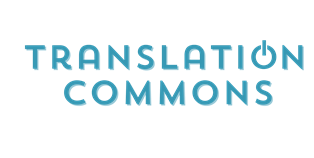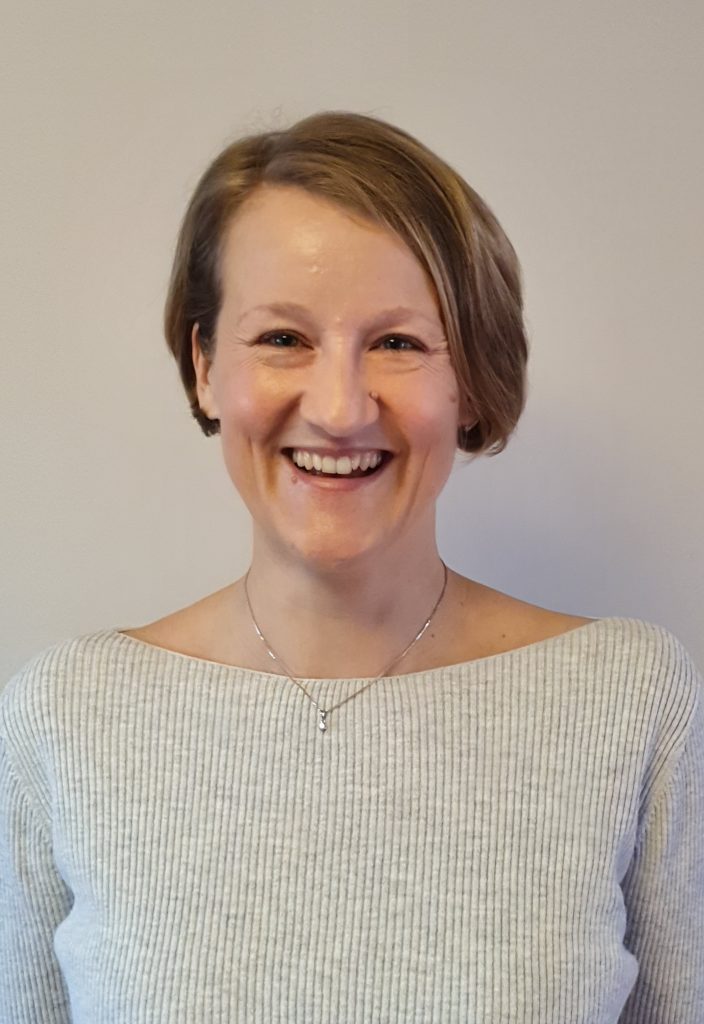
By Marjolein Thickett
The Origins of the Organisation
Have you ever questioned being able to access information on the computer in your mother tongue? Not complicated research information or complex content, but fundamental resources, such as community services information, social media, or local news. Only 1000 of the world’s 7000 native languages are supported online, that is just 14%. As linguists in the translation and interpreting industry, our bread and butter is translating material so that it can be enjoyed by other communities who would otherwise not have access to certain information. It is therefore easy to forget about the communities who do not have the luxury of being able to find information online in their own native tongue. In fact, it is not just that the material does not exist online, but that many of these languages have not yet been made compatible with a digital system.
Languages need to be developed digitally to be accessible online and it is this development which forms part of the digital footprint of a language. For many endangered languages, the process of acquiring a digital footprint is out of reach due to the complexity of the process. The digital development of a language requires information regarding font designs, input methods, educational material, datasets, and trained linguists – it is a complicated, multi-stakeholder journey. This is where Translation Commons comes in.
The notion behind Translation Commons was born in 2014, when founder, Jeannette Stewart, wrote an article on LinkedIn entitled “Can the Language Industry Embrace Collaborative Commons and Survive?”. The response to the article was so overwhelming that Jeannette created a LinkedIn group setting out the premise of a community collaboration. Within 20 days, 1,000 members had signed up. Over the next few years, Translation Commons was incorporated, granted non-profit status, and set up an extensive and all-inclusive Advisory Board.
“Translation Commons can be, for the language industry, an online home for all of us to share, learn and solve some of our pain points. It is our community, and we can organically grow it to reflect us, our values and the importance of our work for the world.”
Jeannette Stewart, Founder of Translation Commons
Case Study
A perfect example of the kind of project which has benefited from our involvement is Open Source Medical Supplies (OSMS). OSMS is one of a group of pro-bono partners who are each personally vetted by Jeannette Stewart. She takes care to ensure that partners fully understand the ins and outs of working with an organisation run by volunteers (no tight deadlines and multiple review processes for example). OSMS was created in response to the Covid-19 pandemic and helps local fabricators and institutions responsibly create and distribute protective gear and medical equipment to local communities in crisis. OSMS provides a curated open-source design library and guidance to help local groups effectively organise themselves to meet the demand for Covid-19 supplies. Translation Commons enabled OSMS to localise the OSMS Medical Supply Guide and Local Response Guide into 44 languages and localised their website into 6 languages.
How can Translation Commons benefit you?
Translation Commons’ vision is to help the language industry by building an online infrastructure to:
- improve its technological capabilities across all languages.
- empower current and future professionals.
- facilitate collaboration and mentoring.
- organise the world’s language resources and initiatives.
- help create a roadmap for the industry.
To achieve such an all-encompassing ambition, the activity of Translation Commons can be split into three main areas:
Impact – where we help to sustain cultures and languages.
Community – creating opportunities through our career paths.
Academy – a platform to share knowledge through courses and resources.
The vision behind Impact is to help every language to digitise and share equally in the benefits of a connected digital world, ensuring that “no language is left behind” as Jeannette so eloquently puts it. Translation Commons helps to make indigenous languages readable and writeable in onscreen format, which allows those languages a vital lifeline and helps preserve that language in return. The Language Digitization Initiative contains work carried out in collaboration with several partners, most notably with UNESCO, as part of their ‘International Year of Indigenous Language’ initiative.
Translation Commons’ Community seeks to offer training and support to students and young professionals. We do this through our Volunteer Framework, which is a language organisation with real-life operations, positions, and responsibilities. The TC Operations Team welcomes all volunteers. Positions are split across four levels:
- Translators and interpreters with any language combination and any experience level. Volunteers are assigned a mentor and tasks to work through (e.g., article translation for the TC website).
- Reviewers. These are translators with at least 3 years under their belt, who mentor less experienced translators as they join the team. At this level, reviewers also develop people management skills.
- Volunteers seeking real management experience. They gain access to positions of responsibility that usually only years of experience in a company would offer you. The skills gained in these positions are highly transferrable and in demand to boot.
- Expert advisers, who typically devote 2-3 hours per month to offer suggestions and answer questions from group leaders.
All positions are designed to provide essential training and to familiarise volunteers with real tasks and responsibilities. Volunteers are encouraged to try a variety of roles and groups to maximise their understanding of a global organisation, such as Translation Commons. The volunteer community enjoy benefits such as developing new skills, accelerating their careers, expanding professional networks, and learning from industry experts.
A large majority of volunteers join Translation Commons to gain experience of translating and interpreting. What better way to build your knowledge, network and translation experience, than by working on materials such as Covid-19 posters and resources, which can form part of your early work portfolio to show to potential clients and employees? Even when volunteers start as translators in the organisation, many take advantage of the ability to try out different roles and move into project management roles (often found to be very helpful when applying to vendor manager roles in the LSP industry) or join the communications team (with roles for content writing and social media managers, for example).
I joined Translation Commons in the last quarter of 2020, when I was still in my first year as a full-time freelancer and trying to build my network from home during lockdown. I initially joined in order to gain more experience of international translation projects, but Jeannette contacted me after I made my application and requested that I join the Marketing and Communications team based on the previous positions I had held. From the very first meeting I was struck by the friendliness of all the volunteers involved and how willing to help and get involved everyone is. It may be a charity organisation, but the general sense of pace and dedication to the work we carry out, is truly impressive. If I view my experience with Translation Commons as a whole, I would say that it has provided me with a well-rounded mix of experience, contacts (and friends!), and a more holistic and ethical perspective on the language industry than I had before.
Volunteer Profile: Agata Schweizer (extract from the Humans of Translation Commons series)

Despite her surname, Agata Schweizer is in fact Polish, although her father-in-law is Swiss. Agata studied psychology in Poland. After a 14-year career in market research, Agata decided to make the leap to become a translator. She took a distance Masters in Translation at Portsmouth University, and then suddenly had to face up to the challenges of freelancing – with no network, no clients, no LinkedIn account, and a CV with zero reference to translation.
Agata joined Translation Commons late last year and soon began working on the localisation team. With all the skills she has since acquired – writing processes, project management, organising teams – it has proved to be a great chance to use her existing professional acumen and knowledge, as well as learning from new experience and working with colleagues around the world.
And once again, a tremendous source of freedom to learn from those colleagues, use your initiative and take risks. Since then, Agata’s grown in confidence and critical thinking, developing strong problem-solving skills, and discovering a great deal about herself along the way. She looks back on this last year as a springboard for growth and a daring step out of her comfort zone.
In Agata’s own words, “Translation Commons represents a priceless opportunity to gain hands-on experience and learn about the language industry. It allows me to work with people from around the world that I could not meet otherwise. And it leaves you with a good feeling that not only benefits you, but the whole translation community.”
The third string to Translation Commons’ bow, is the Academy. In accordance with the U.N. Sustainable Development Goals (specifically the Quality Education goal), Academy ensures inclusive and quality education for all and actively promotes lifelong learning. To that effect, the organisation offers three separate sections for personal development: the Tools Platform, the Resources Hub, and the Learning Centre.
More than 45 different open-source tools are supported on the Tools Platform. All software is free to use and is supported for users to be able to learn new skills, become familiar with a wide variety of software, and ultimately increase a user’s chances of employment. Software offered here includes Memsource, Pootle, Wordfast Anywhere, OmegaT and Virtaal, among many others.
The Resources Hub offers a compilation of links to websites offering essential and practical resources and information to students and young professionals. For newcomers to the industry, it can be at best time-consuming, at worst overwhelming, trying to find reliable information and build up solid knowledge of translation and interpreting. The links housed on the Hub give everyone the opportunity to benefit from valuable resources put together by dedicated and committed contributors. Translation Commons welcomes the addition of new resources to the Hub, please submit any resources which could be of use to other professionals on the Translation Commons website.
If you are looking for courses which help improve translation and interpreting skills, then the Learning Centre is the place to go. The aim of the Learning Centre is to offer current and future professionals the opportunity to enhance their professional profiles. Courses cover material such as Localisation, Terminology, Translation Project Management, ICT skills, and Subtitling.
Volunteer Positions
Through its various programs and working groups, Translation Commons (TC) aims to unite the diverse sectors within the language community and to encourage cross-functional collaboration.
If you would like to develop your skills as a translator or interpreter or would like to give back to the industry and empower the next generation of professionals, please visit the Translation Commons website.
Current positions in search of volunteers include:
Translators and Reviewers
Account Handling Group Manager
Program Manager
Social Media Manager
Campaign Content Manager
Content Writer
Programme Management Group Manager
For details of all of these and more, please see the vacancies page on the Translation Commons website.
With thanks to all contributors at Translation Commons, particularly Jeannette Stewart, Andrew Morris and Agata Schweizer.

Marjolein Thickett is a Russian, German and Dutch to English Translator and the owner of The Native Crowd. After more than 10 years in B2B sales and marketing into Russia, Marjolein found her calling in the translation and localisation of marketing, sustainability, and sports content. Marjolein is the Communications & Marketing manager at Translation Commons.
http://www.linkedin.com/in/marjolein-thickett-russian-german-translator
https://www.thenativecrowd.com/
Useful Links